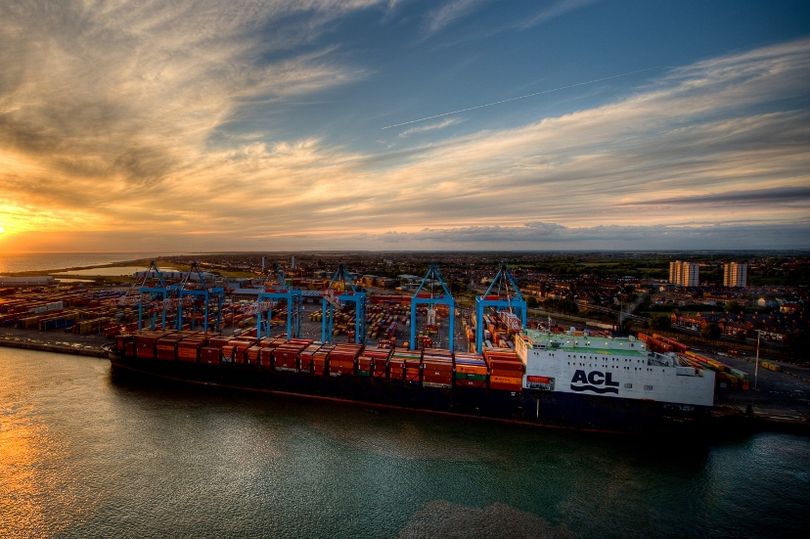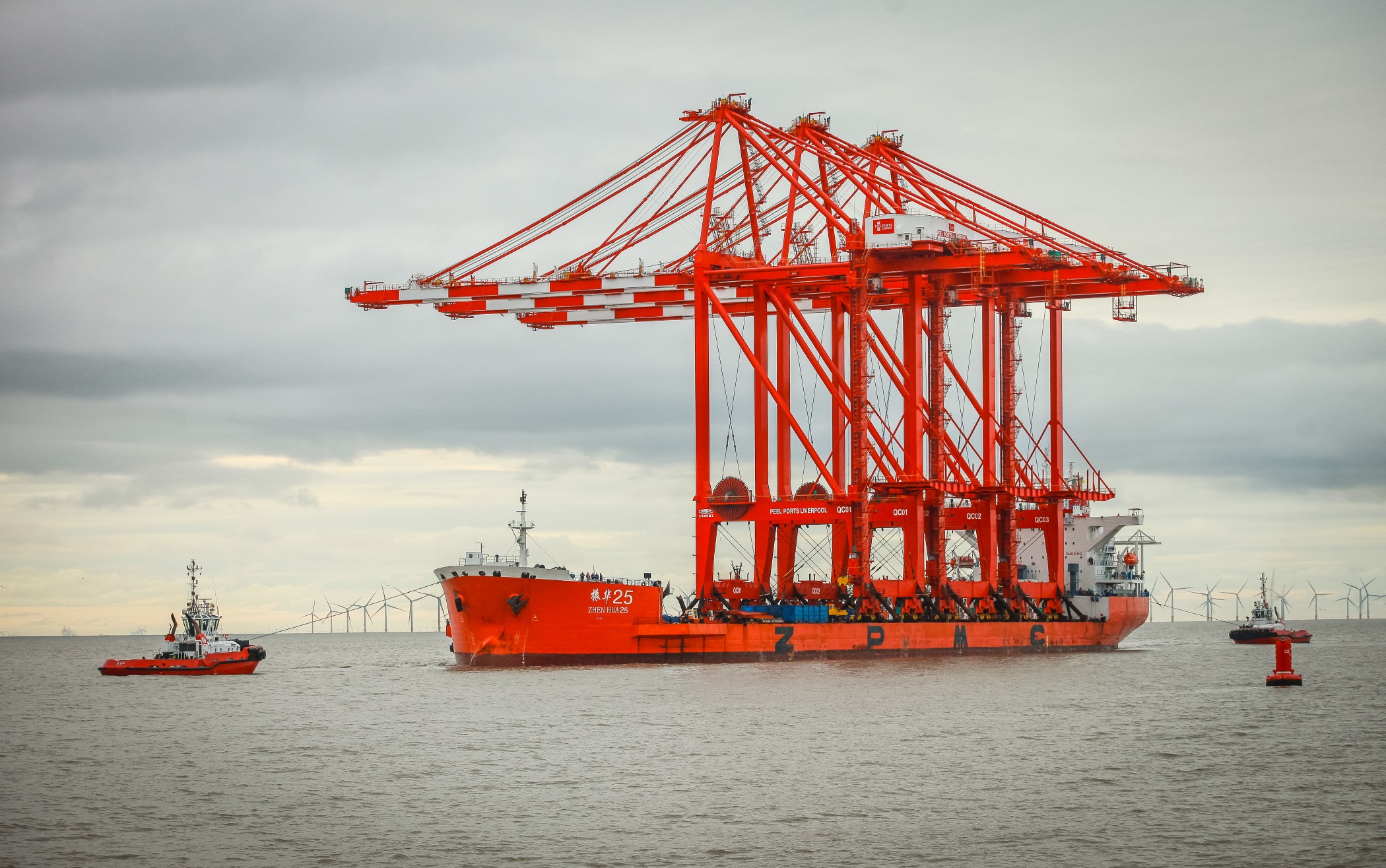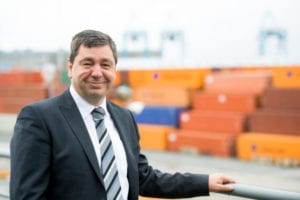ATLANTIC CONTAINER LINE – SUCCESS STORY
Atlantic Container Terminal (ACL) is a specialised carrier of containers, project and oversized cargo, heavy equipment and vehicles with the world’s largest combination Container/RORO (CONROs) ships.

Atlantic Container Line vessel in the Port of Liverpool
The global shipping giant holds a major place in British maritime history, as Europe’s first dedicated container line. ACL vessels have called at the Port of Liverpool since 1967, with the Cunard Line of Liverpool being one of ACL’s original shareholders.
ACL, a subsidiary of the Grimaldi Group, offers a direct RORO/Container service which calls Baltimore, Norfolk-PMT, New York and Halifax, Liverpool, Antwerp, Hamburg and Gothenburg. ACL has slot exchanges with other lines, offering five weekly transatlantic sailings.
The company’s global headquarters are in Westfield, New Jersey with offices throughout Europe and North America. ACL employs 160 people at its European Customer Center in Liverpool’s City Centre in a newly constructed, highly sustainable, BREEAM Excellent, 40,000 sq ft building on Duke Street.

Peel Ports Ship to Shore cranes arrive in Liverpool.
The company’s roll-on/roll-off operations makes ACL the biggest ocean carrier at Liverpool’s Royal Seaforth Container Terminal (RSCT) and the port’s longest serving container carrier.
ACL ships more than 125,000 units of containers, cars and RORO machinery per annum, and supports a substantial supply chain with a critical link between the UK’s export and import trades.
ACL’s vessels call at Liverpool twice each week, its fastest import and export transatlantic service. Liverpool connects ACL’s customers in the British industrial heartland, Scotland and Ireland with North America.
The long-term relationship between ACL’s terminal operations and the Peel Ports operations team provides customers with cutting-edge technologies and improved cargo efficiency for all containers, roll-on/roll-off and breakbulk cargo.
In November 2019, ACL signed a 15-year extension deal with Port of Liverpool owner Peel Ports to continue its transatlantic cargo service from the Port of Liverpool to North America. The new agreement, which extends until 2035, is a significant vote of confidence in the port, amid expectation of an increase in trade with the US and Canada post-Brexit.
Peel Ports has made several investments in the North West over the past five years, including the £125m tri-modal inland port facility and national distribution park, Port Salford and the £100m biomass terminal at the Port of Liverpool.

Image caption: Peel Ports chief executive Mark Whitworth
Peel Ports Group is also making a significant investment at RSCT to accommodate ACL’s new fleet of G4 vessels, which are registered in the UK and fly the Red Ensign. The passage entrance into the Seaforth Basin has been widened by 28 metres to allow safe access for the large G4 vessels into the terminal.
Peel Ports has also recently invested in two ship-to-shore (STS) cranes with increased height and reach, adding capacity to the dedicated vehicle storage area to handle ACL’s growing cargo requirements. The overall project expected to be completed during 2021. Mark Whitworth, Chief Executive of Peel Ports, said:
“Our investments are opening up trade opportunities for UK firms and helping business to reduce costs, congestion and carbon emissions.
“The capabilities we have at the Port of Liverpool are creating a new centre of gravity for the logistics sector, providing jobs and training for a new generation of workers in the country’s most iconic maritime city.
“Liverpool’s strategic position makes it a prime gateway for transatlantic trade and will continue to be instrumental as confidence in North American trade grows. The investment we’ll be making in the new STS cranes will help other customers as well as ACL.”
Gianluca Grimaldi, president of the Grimaldi Group, said:
“This agreement signifies the long-standing partnership with our daughter company, ACL. The Grimaldi Group applauds the major improvements to Royal Seaforth Terminal and recognises it as a renewed commitment of our strong relationship with the Port of Liverpool, Mersey Maritime, and the customers and suppliers who have been supportive of ACL’s operation for so many years.”

